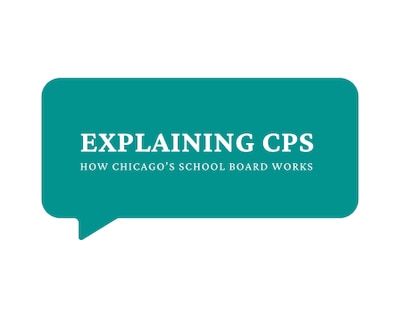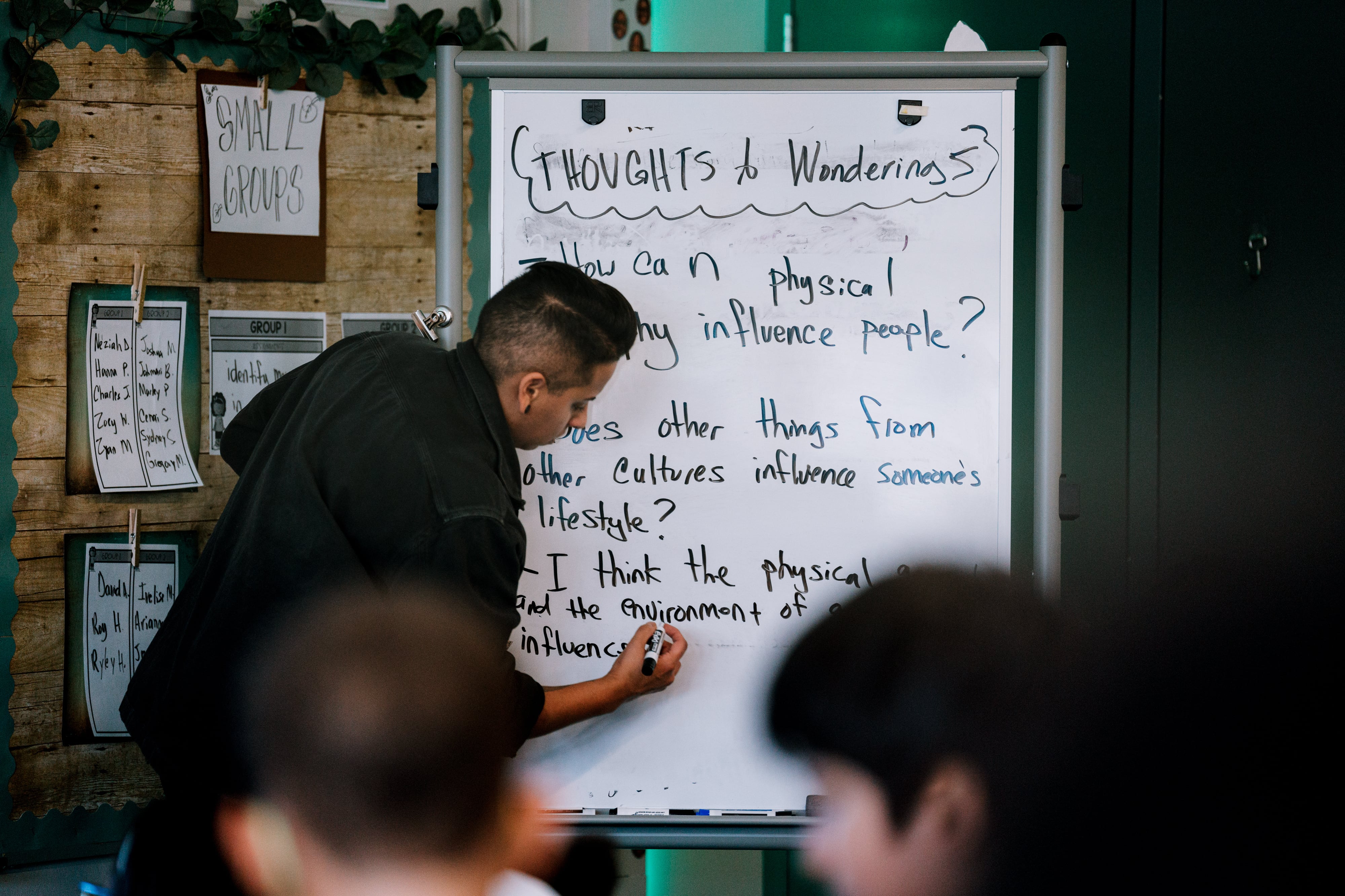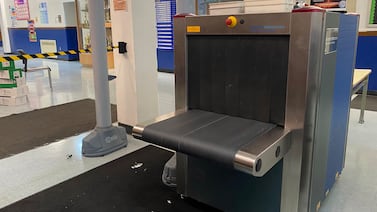Sign up for Chalkbeat Chicago’s free daily newsletter to keep up with the latest education news.
The Chicago Board of Education is one of the state’s largest employers — with more than 41,000 people on staff as of June 30, 2024.
On top of that, the city’s more than 100 public charter schools, which operate on contracts approved by the school board, employ thousands of additional workers.

Although student enrollment has declined, the number of teachers, principals, school support staff, and central office administrators directly employed by the school district has increased — growing from around 36,000 staff five years ago to more than 41,000 in the 2023-24 school year.
As of June 30, 2024, more than 47,000 positions were budgeted. However, not all of these positions are filled each year and often schools operate with vacancies and long-term substitutes instead of full-time teachers.
The mix of school staff has also shifted.
Last school year, there were about 19,500 teachers, more than 7,500 teaching assistants, 1,500 counselors and social workers, 1,200 school security guards, 1,000 custodians, and 1,000 principals and assistant principals.
While the number of teachers and school leaders has remained relatively flat over the past decade, the number of school social workers and counselors increased in recent years after the Chicago Teachers Union bargained for more of these positions in its 2019 contract negotiations.
A Chalkbeat analysis of district staffing records also found an increase in Special Education Classroom Assistants, or SECAs, from around 2,500 in 2014 to more than 6,000 at the start of last school year. In addition, the number of school nurses roughly doubled in the past decade — from around 300 to just over 600 — and the number of custodians jumped recently from around 700 to more than 1,000.
Most Chicago schools do not have a full-time librarian and haven’t since their ranks dwindled a decade ago. The Chicago Teachers Union has said this is a position it intends to advocate for in contract talks.
Which unions represent Chicago Public Schools’ employees?
The Chicago Board of Education has 10 active collective bargaining agreements with various unions representing school district employees.
CPS principals are also taking steps toward bargaining a contract with the district after Illinois lawmakers passed legislation to allow school leaders to unionize.
The three largest unions that CPS employees belong to are:
- The Chicago Teachers Union (CTU), which represents more than 24,000 teachers, counselors, social workers, and nurses.
- The Service Employees International Union (SEIU) Local 73, which represents about 11,000 school support workers, including custodians, special education classroom assistants, bus aides, security officers, crossing guards, and parent-workers.
- UNITE-HERE Local 1, which represents more than 2,000 lunchroom workers.
The CTU is one of the largest and most powerful unions in Chicago – and one of the most influential teachers unions across the country.
After 15 years of organizing around broader progressive social issues, a former CTU organizer is Chicago mayor, paving the way for a potentially less contentious relationship with district management.
The shift comes after CTU went on strike twice — in 2012 for seven days under former Mayor Rahm Emanuel and again in 2019 for 12 days under former Mayor Lori Lightfoot — after acrimonious public disagreements over the future of the city’s public schools.
In the past, district leaders and their lawyers would work to reach a tentative agreement with the union and their lawyers. Once that happened, it would go to union members for a ratification vote and then the school board would vote to approve the deal.
School board members have sat at the bargaining table in the past. Under Emanuel, school board president David Vitale participated in contract talks and provided updates to the public. However, the district’s bargaining team under Lightfoot did not involve anyone from the school board.
Elected officials have also, in the past, weighed in publicly about the prolonged cancellation of classes or in support of the teachers.
Once a deal is made, the school board typically has to amend the budget to account for the cost of promises made in the bargaining agreement, such as salary raises or additional staff.
The CTU contract expired on June 30 and the school board approved a $9.9 billion budget for the 2024-25 school year in July. By August, talks between the district and union had made little progress after a series of public bargaining sessions over the summer.
Earlier this year, the district reached an agreement with SEIU Local 73 after more than a year of bargaining on behalf of school support staff, including custodians, special education classroom assistants, bus aides, security officers, and crossing guards. The deal includes 4-5% pay raises each year of the agreement and is set to end June 30, 2027.
Charter schools and other third party contractors
Thousands of workers also work in public schools in Chicago, but are not captured in the district’s staffing data.
This includes the staff at more than 110 charter schools serving nearly 55,000 students.
Charter schools are publicly funded, but privately managed. The school board evaluates and votes on whether to renew or award new charter school agreements, but these schools otherwise operate independently from many of the school district’s rules and policies, including union contracts.
However, many charter school teachers are unionized and represented by the CTU, though each charter network has its own contract.
Becky Vevea is the bureau chief for Chalkbeat Chicago. Contact Becky at bvevea@chalkbeat.org.






